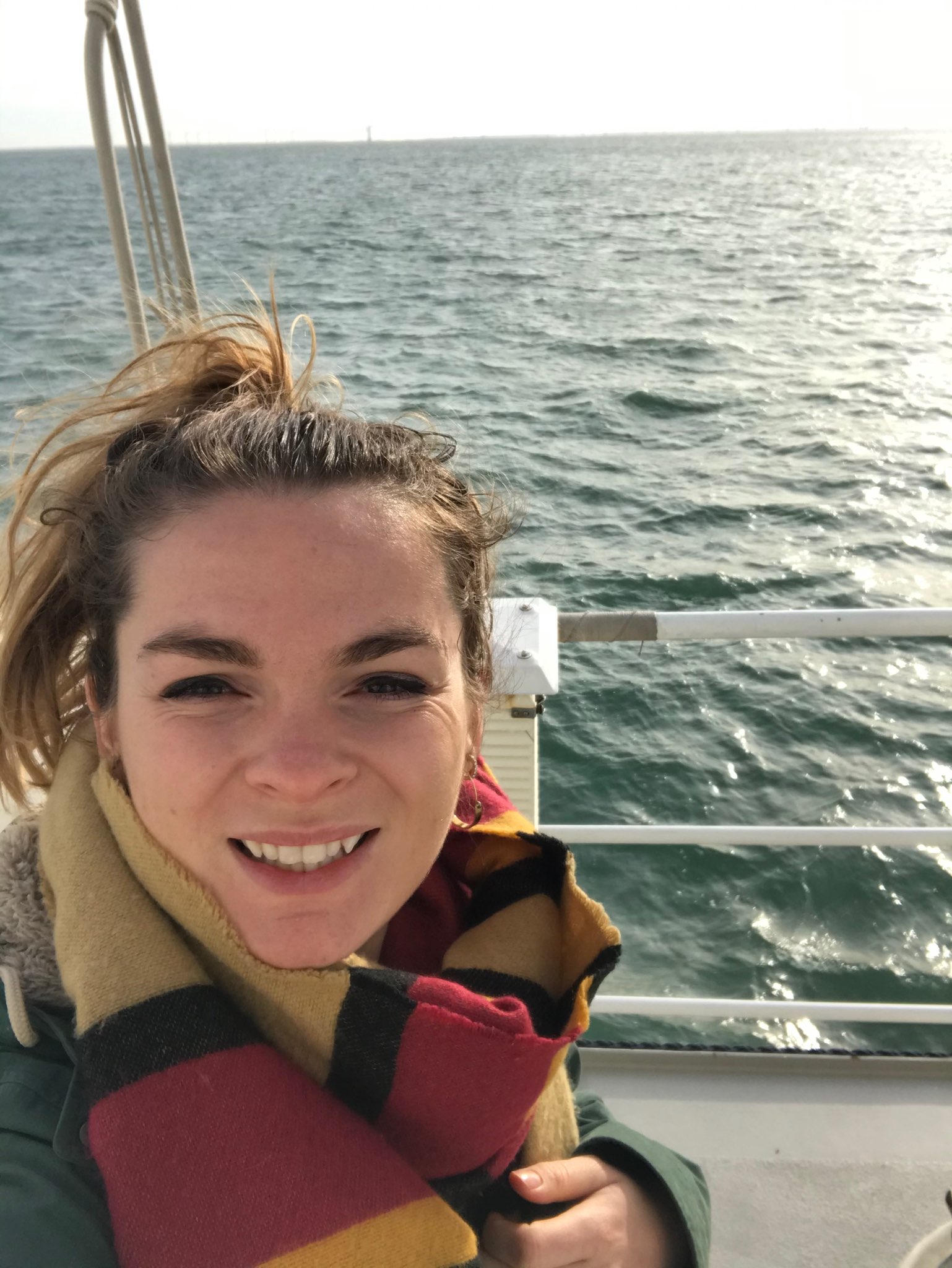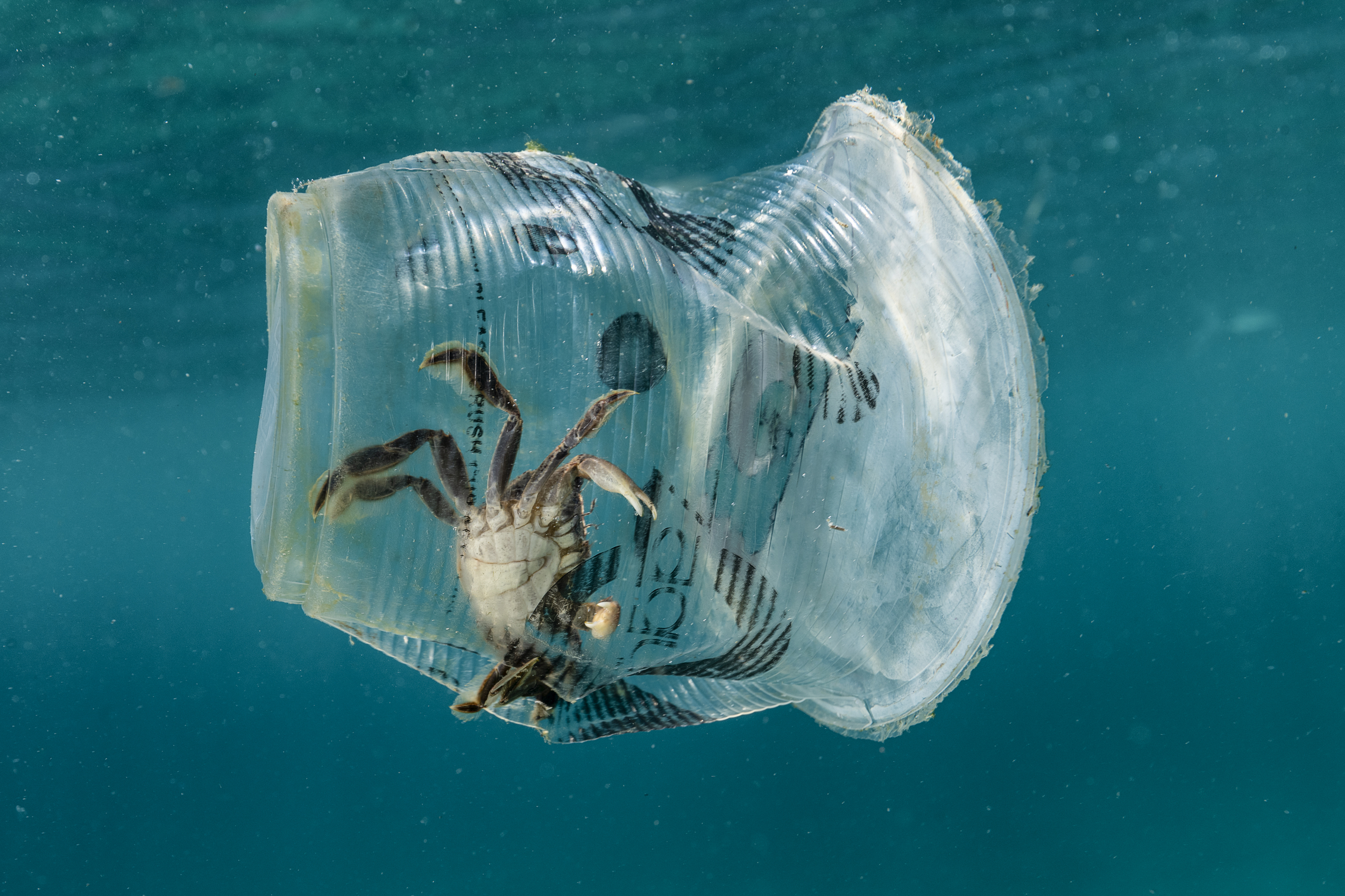
After years of build up, and with 175 nations on board, the crucial final months of the Global Plastics Treaty are upon us.
But what is the Global Plastics Treaty? What’s happened so far? And could this really be the treaty that ends plastic pollution for good?
What is the Global Plastics Treaty?
In 2022, the United Nations agreed to develop a new treaty to tackle what has quickly become a global crisis: plastic pollution.
Nearly every country has joined the negotiations. Together they will come up with a set of international rules about the way we produce and handle plastics.
The treaty could regulate things like the harmful chemicals found in plastics, the phase-out of single use plastics, and – crucially – the amount of plastic that is produced in the first place.It is extremely hard to bring so many countries together. We will likely never get another opportunity like this.
And the stakes are high: plastic pollutes our oceans and harms wildlife and human health. What’s more, plastic is made from oil and gas and its production alone accounts for about 5% of climate emissions.
In the UK, we are drowning in plastic and our systems can’t cope. More than half (58%) of the plastic we throw away, ends up being burnt in incinerators – polluting the air we breathe.
How does it work?
Each nation sends representatives to the UN to discuss what the treaty should include. The ultimate aim is to produce a text – the treaty – which lays out the newly agreed rules. Then, it’s up to the nations to implement them.
After multiple rounds of negotiations, countries are expected to agree on a final treaty by the end of 2025.
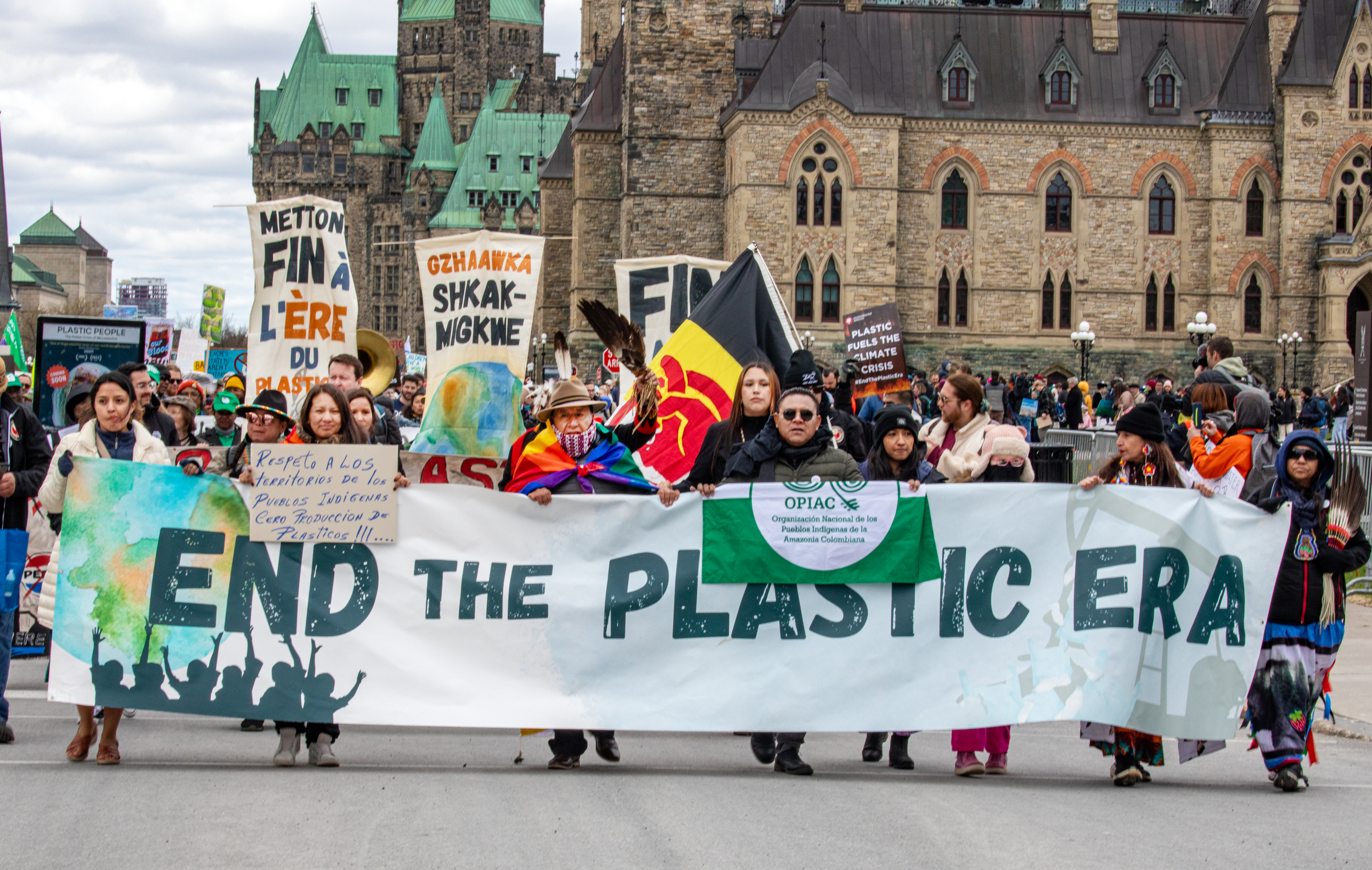
Okay, the UN’s not perfect. But it’s the only tool we have to solve big global problems like plastic. No other institution can bring together such a huge proportion of the world. When so many countries agree to take action, it’s our best shot at achieving real change on a global scale.
And when it works, it really works. In 2023, the UN passed a historic agreement to protect the world’s oceans, after years of campaigning from Greenpeace and its friends and supporters.
If we get this right, we could do the same for plastic pollution.
The plastic industry fights dirty
So, where have we got to? At the latest round of negotiations in Canada, Indigenous leaders told delegates how microplastics are contaminating food supplies and threatening their way of life. Scientists shared research on plastic pollution and attempted to counter disinformation. The Scientists Coalition told negotiators that the only way to tackle the problem is to limit plastic production at its source.
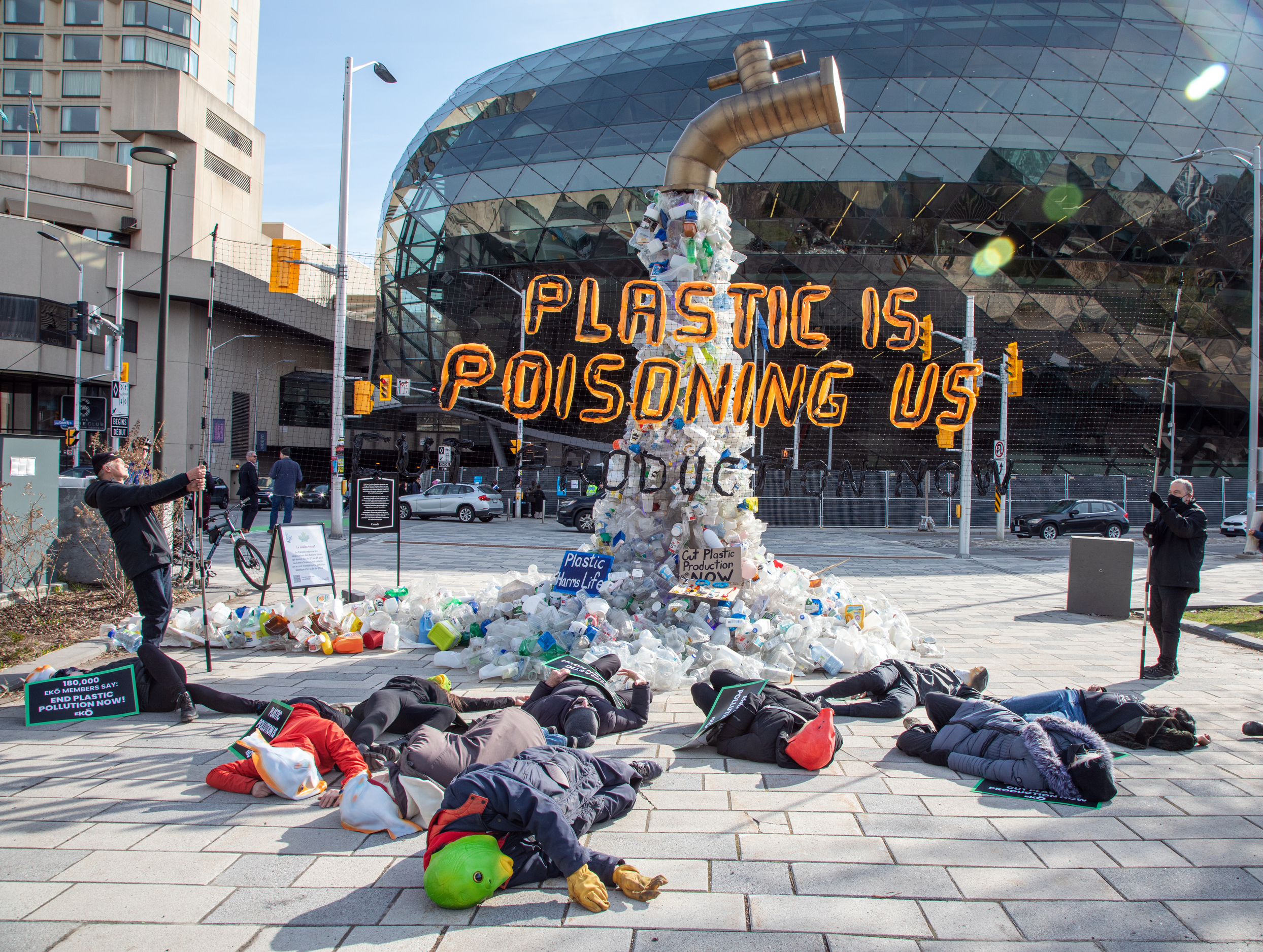
Some countries shone through: Peru and Rwanda championed a new proposal to reduce plastic production, which was backed by Malawi, the Philippines, Fiji and others, and 28 countries including France, Australia and the Netherlands signed the ‘Bridge to Busan’ declaration calling for cuts to plastic production.
But many other states seemed to be listening more closely to the industry lobbyists. 196 representatives from the fossil fuel industry turned up to the talks in Canada. That’s more than from the 87 smallest countries combined.
Ultimately, the talks ended in disappointment. There was no agreement to allow for ‘intersessional work’ to advance the issue of production reduction, which makes it more likely that limits to plastic production will be excluded from the treaty. Without production limits, the treaty would be a resounding failure.
But there is still hope – the reduction of plastic production is still on the table. This round of talks may be over, but we’re now heading into the most crucial phase for securing a strong treaty.
The UK – friend or foe?
The UK public is already stepping up to tackle plastic pollution. Earlier this year over 220,000 people took part in The Big Plastic Count to demonstrate the scale of the UK’s contribution to the plastics crisis and the need to tackle it.
The UK government should be leading the charge for a strong Global Plastics Treaty. It is a member of the High Ambition Coalition, along with 63 other countries who committed to ending plastic pollution by 2040.
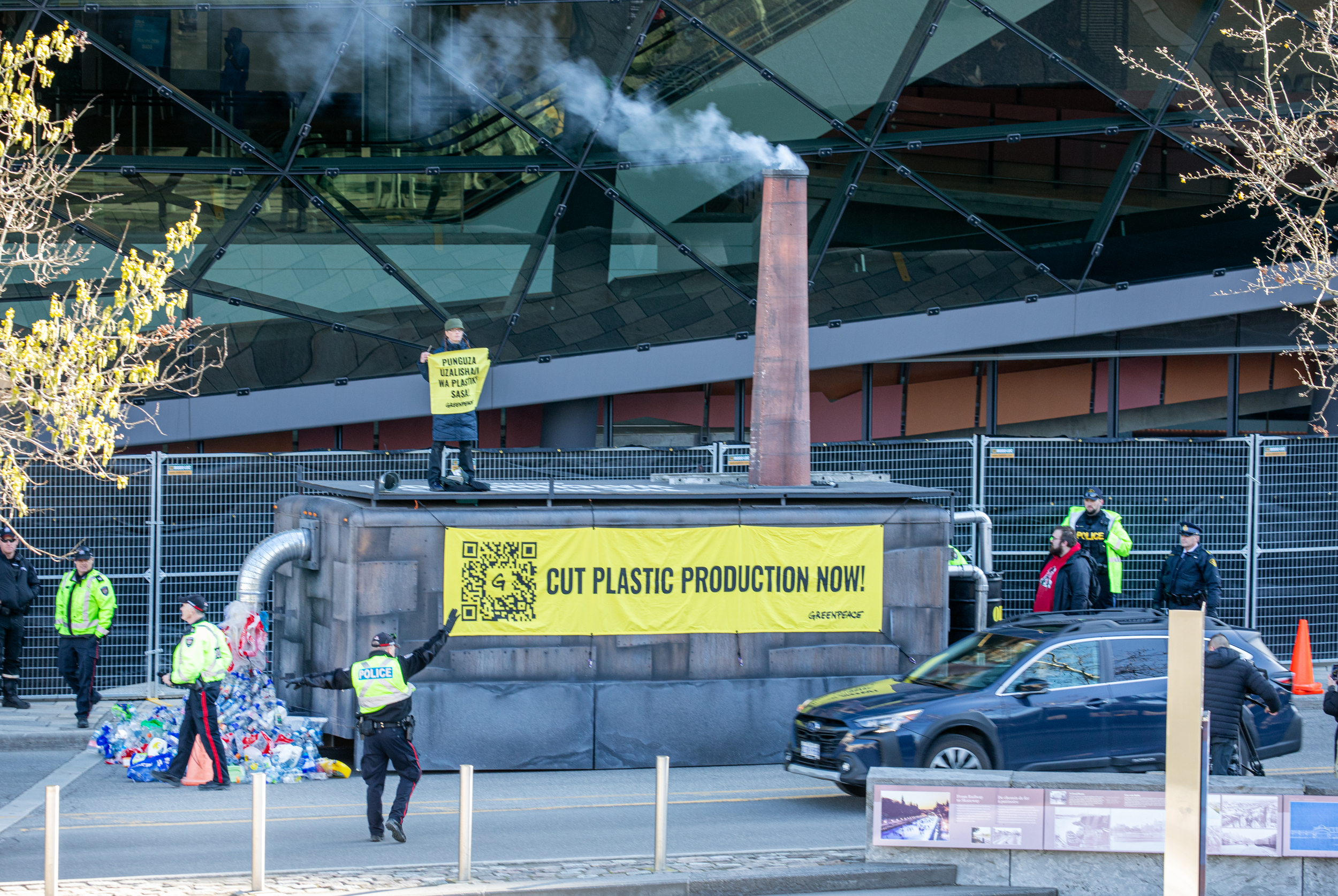
While this is a good look on the international stage, our government’s actions at home are far from helpful – they have plans to finance a huge new plastics factory in Belgium with £600 million.
And sadly, so far the High Ambition Coalition is not living up to its name. In the dying moments of the Canada talks, when it mattered most, the UK and many others failed to support proposals to cut plastic production and succumbed to the pressure from the fossil fuel industry.
The government needs to catch up with the public and show true leadership both at home and abroad.
At the next round of talks in South Korea in November, the UK must unite with ambitious countries and push for real change: a legally-binding target to cut global plastic production.
We have a historic opportunity, and everything to play for.
Take action
Sign the petition calling on the government to champion a strong Global Plastics Treaty
